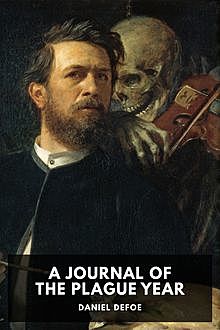A Journal of the Plague Year, written by a citizen who continued all the while in London
337 printed pages
Quotes
- Anders Frank Østergaard Pedersenhas quoted5 years agohat it began; for though I have lived to see a further increase, and mighty throngs of people settling in London more than ever, yet we had always a notion that the numbers of people which, the wars being over, the armies disbanded, and the royal family and the monarchy being restored, had flocked to London to settle in business, or to depend upon and attend the Court for rewards of services, preferments, and the like, was such that the town was computed to have in it above a hundred thousand people more than ever it held before;
- Anders Frank Østergaard Pedersenhas quoted5 years agoIt must not be forgot here that the city and suburbs were prodigiously full of people at the time of this visitation, I mean at the time
- henrikjohnsen21912has quoted5 years agoAnd I know it so well, and in so many several cases, that I could give several relations of good, pious, and religious people who, when they have had the distemper, have been so far from being forward to infect others that they have forbid their own family to come near them, in hopes of their being preserved, and have even died without seeing their nearest relations lest they should be instrumental to give them the distemper, and infect or endanger them. If, then, there were cases wherein the infected people were careless of the injury they did to others, this was certainly one of them, if not the chief, namely, when people who had the distemper had broken out from houses which were so shut up, and having been driven to extremities for provision or for entertainment, had endeavoured to conceal their condition, and have been thereby instrumental involuntarily to infect others who have been ignorant and unwary.
fb2epub
Drag & drop your files
(not more than 5 at once)


